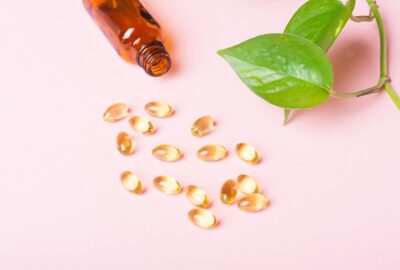Hair Care, Healthy Living
Vitamin D the essential Vitamin
How Vitamin D3 can protect you through the winter
The human body produces vitamin D as a response to sun exposure. A person can also boost their vitamin D intake through certain foods or supplements. Vitamin D3 is essential for several reasons, including maintaining healthy bones and teeth. It may also protect against a range of diseases and conditions, such as type 1 diabetes.
Vitamins are nutrients that the body cannot create, and so a person must consume them in the diet. However, the body can produce vitamin D. In this article, we look at the benefits of vitamin D, what happens to the body when people do not get enough, and how to boost vitamin D.
Existing research suggested that some studies had found that vitamin D had a protective effect against the influenza virus. Further research is, necessary to confirm the protective effect of vitamin D on the flu. Although the body can create vitamin D, a deficiency can occur for many reasons.
Causes
Skin type: Darker skin, for example, and sunscreen, reduce the body’s ability to absorb the ultraviolet radiation B (UVB) rays from the sun. Absorbing sunlight is essential for the skin to produce vitamin D.
Sunscreen: A sunscreen with a sun protection factor (SPF) of 30 can reduce the body’s ability to synthesize the vitamin by 95%. Covering the skin with clothing can also inhibit vitamin D production.
Geographical location: People who live in northern latitudes or areas of high pollution, work night shifts, or are homebound should aim to consume vitamin D from food sources whenever possible.
Breastfeeding: Infants who exclusively breastfeed need a vitamin D supplement, especially if they have dark skin or have minimal sun exposure. The American Academy of Paediatrics recommend that all breastfed infants receive 400 iu (IU) per day of oral vitamin D.
The upper limit that healthcare professionals recommend for vitamin D is 4000 iu per day for an adult. However, the National Institutes of Health (NIH) say that vitamin D toxicity is unlikely at intakes under 10,000 IU per day.
Vitamin D has received worldwide attention not only for its importance for bone health in children and adults but also for reducing risk for many chronic diseases including autoimmune diseases, type 2 diabetes, heart disease, many cancers and infectious diseases. Vitamin D deficiency is pandemic because most humans have depended on sun for their vitamin D requirement which they now either avoid or wear sun protection for fear of skin cancer. Few foods naturally contain vitamin D. Some countries permit vitamin D fortification especially dairy products, some cereals and juice products.
As many of us find ourselves confined to our houses due to social isolation measures, concerns tend to arise about the lack of sunlight – and possible vitamin D deficiency. For many, a go-to fix is to take supplements.
The supplement, after all, has been touted as a near-miracle. Both vitamin D2 and D3 supplements are available over-the-counter without a prescription and have been linked to improving immunity, tiredness and muscle weakness, bone pain, and depression. They have also been said to help stave off cancer and the consequences of ageing.
Despite its name, vitamin D is not a vitamin. Instead, it is a hormone that promotes the absorption of calcium in the body. The challenge is that, aside from a few foods like oily fish, vitamin D is hard to find in the average diet. But in the presence of “ultraviolet B” rays, our skin can produce its own from a common cholesterol.
However, the Association of UK Dieticians, in light of self-isolation during the current pandemic, has recently expanded that advice up, at least. In a post released in March 2020, as the UK entered spring, it said: “If you are having to self-isolate or if you are unable to go outside, you should consider taking a daily supplement containing 10 micrograms to ensure a healthy vitamin D status (for adults and children over the age of one).”
We know that low vitamin D may cause muscle weakness and fatigue. One study found that low vitamin D was high among people with fatigue and that their symptoms improved after five weeks of vitamin D supplements, while a small study from Newcastle University found that low vitamin D could cause fatigue as low levels cause mitochondria, the ‘power stations’ in every cell of the body. Studies in patients with cancer have found similar effects. Vitamin D may also help bolster and regulate the immune system by clearing bacteria.

























Recent Comments